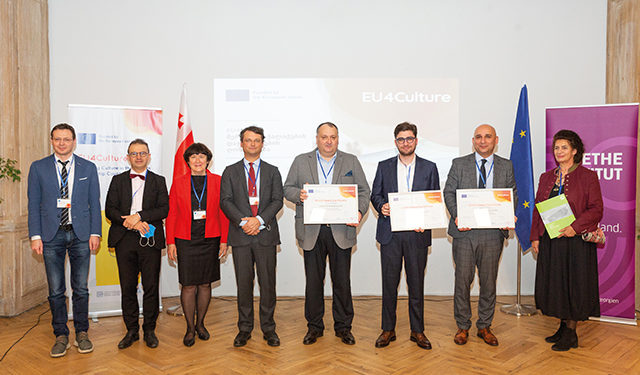On December 1, the Delegation of the European Union to Georgia and its partners in Georgia organized a press conference and award ceremony to officially announce three selected cities that will each receive a EUR 30,000 grant to prepare Cultural Development Strategies.
The call for grant applications was launched in May 2021. It aims to support non-capital cities and towns to develop and implement Cultural Development Strategies, following the approach of the European Capitals of Culture. Overall, 70 cities from five Eastern Partnership countries participated in the call. After evaluation of the submitted applications, Kutaisi, Poti and Zugdidi were selected for Georgia.
These three Georgian cities will receive 30,000 EUR in grants to develop Cultural Development Strategies. The six-month working period for preparing the strategies started on December 1. At the final stage of the call, one of those cities will be awarded a grant of up to €300,000 to implement its strategy. In addition to grants, the project will provide capacity-building support to the cities.
“We are pleased that with the EU support under the EU4Culture program, Kutaisi, Poti and Zugdidi will start to work for the first time on Cultural Development Strategies for their cities,” said Catalin Gherman, Deputy Head of Cooperation of the EU Delegation to Georgia. “This is a major opportunity for these cities to further explore the potential of their cultural and creative sectors and then implement actions that will make positive changes for their communities and beyond. The EU attaches great importance to culture as a key element conducive to sustainable development and the economic growth of cities, particularly relevant for their recovery in the context of the pandemic.”
EU4Culture is a four-year project funded by the European Union to support culture and the creative sector, with a special focus on non-capital cities and towns in the Eastern Partnership Countries. The project is implemented in Georgia by the Goethe Institut (lead), Institut Francais Georgie, Danish Cultural Institute, and Czech Centers.
GEORGIA TODAY spoke to Ioseb Khakhaleishvili, Mayor of Kutaisi, on the win.
“Winning the grant as part of the EU4Culture project is a great honor for us all, the local authorities, cultural sphere and ordinary citizens, too,” he tells us.
“We’re very grateful for this project. Especially during the pandemic, I believe that developing modern approaches in cultural directions using various tools, including digitalization, is of the utmost importance for our city, as is raising awareness about it among foreign citizens.
“It will also contribute to introducing business and economy in culture and the integration of these spheres, strengthening all the mentioned directions,” the Mayor notes.
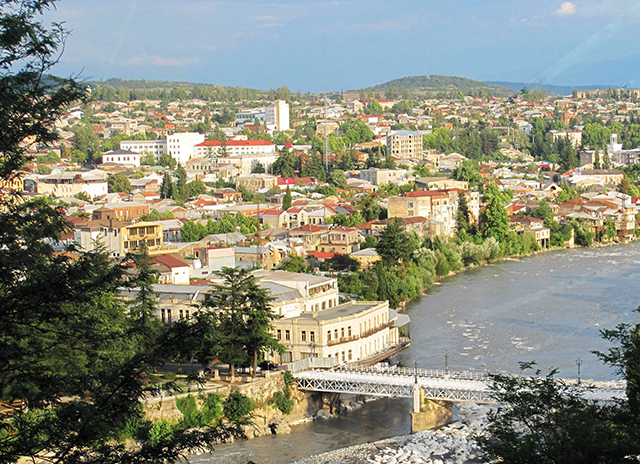
We ask him how he plans to spend Kutaisi’s win.
“We created the relevant concept demanded by the commission and now we have been given the opportunity to involve various experts, both local and international, in our plans and achieve greater results through their help,” he tells us. “The project will be implemented through festivals, concerts and meetings. Sharing experience with foreign cultural sphere representatives will be especially important, and getting acquainted with the European experience in terms of cultural development will be very useful for Georgia. In the future, business and culture will be even more closely linked, increasing diversity and bringing more benefits to the development of the economy as a whole. The local self-government will play its role in this process, as a kind of mediator.”
“Most importantly, in the end, getting and creating this document and then turning it into a project strategy, whether we receive the final grant or not, means that in the future we can also address other donors to help us in the development of our strategy. We believe that, whatever happens, in the near future, we’ll be able to get financial assistance for the development of this strategy from various donors working on cultural promotion.
“Thanks to the project partners who helped us to prepare this strategy for their support and giving us more motivation. We believe it is yet another step forward in terms of cultural development in Kutaisi,” Mayor Khakhaleishvili concludes.
About the cities
Kutaisi
Kutaisi is one of the oldest continuously inhabited cities in the world and is the third-most populous city in Georgia, traditionally second in importance after capital city Tbilisi. Situated 221 kilometers west of Tbilisi, on the Rioni River, it is the capital of the western region of Imereti.
Historically one of the major cities of Georgia, it served as political center of Colchis in the Middle Ages as capital of the Kingdom of Abkhazia and Kingdom of Georgia, and later as the capital of the Kingdom of Imereti. From October 2012 to December 2018, Kutaisi was the seat of the Parliament of Georgia in an effort to decentralize the Georgian government.
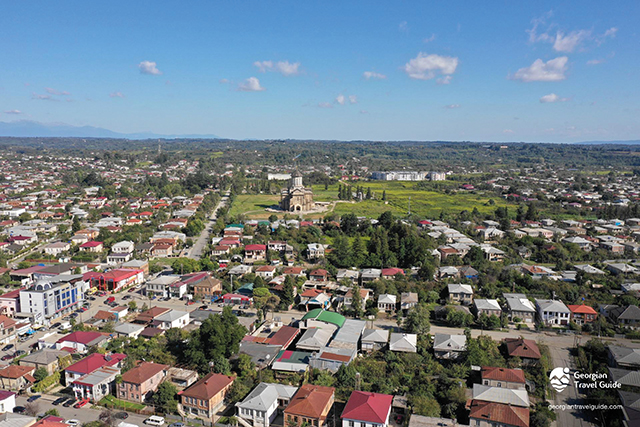
Kutaisi has traditionally been an important industrial center in Georgia, but after the collapse of the Soviet Union, most of the old manufacturing lines either stopped working or had to greatly reduce their operations. Nevertheless, the city continues to be an important regional center for the greater Imereti area, acting as a commercial hub for the surrounding countryside. In recent years, the city has started attracting more investment from various multinational corporations.
The Auto Mechanical Plant, originally established in 1945, is located in Kutaisi.
There are two free industrial zones in Kutaisi: The Kutaisi free industrial zone (Kutaisi FIZ) and the Hualing free industrial zone (Hualing FIZ). The Kutaisi FIZ was created in 2009 and was established on the initiative of Fresh Electric, an Egypt-based home appliances producer. The Hualing FIZ has been running since 2015, and specializes in wood and stone processing, furniture and mattress production and metal construction. Both of the free industrial zones offer multiple incentives to investors, such as tax exemptions and reduced barriers for trade.
In 2019, German solar panel manufacturer AE Solar opened a new, fully automated manufacturing line in Kutaisi. With a total output of 500 MW per year, it is the largest solar panel factory under one roof in Europe. The same year, Changan Automobile announced plans to construct an electric car factory in Kutaisi, with an annual production capacity of up to 40,000 vehicles. The company plans to export about 20,000 cars to the EU annually and to employ up to 3,000 people.
Poti
Poti is a port city located on the eastern Black Sea coast in the region of Samegrelo-Zemo Svaneti in the west of the country. Built near the site of the ancient Greek colony of Phasis and deriving its name from the same, the city has been a major port city and industrial center since the early 20th century. It is also home to a main naval base and the headquarters of the Georgian Navy.
The service and food industry represent the most important sectors of the economy in Poti, but the Poti Sea Port (7.7 million tons per annum) is the focus of the local economy. The railway to Tbilisi makes Poti a more useful port than the natural harbor at Batumi.
The Poti Sea Port is the largest port in Georgia, handling container, liquids, dry bulk cargo and passenger ferries. The multi-purpose facility has 15 berths, a total quay length of 2,900 meters, more than 20 quay cranes and 17 km of rail track.
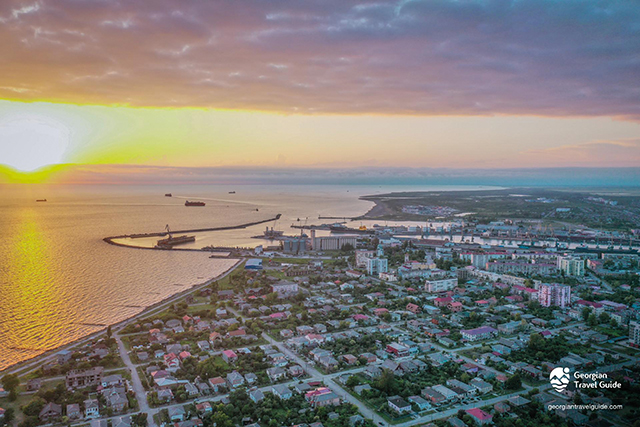
The port serves as a European gateway for international trade in Georgia, Armenia and Azerbaijan, and is ideally located to become a hub for Central Asia trade. It offers direct ferry traffic with the Black Sea ports of Ukraine, Russia and Bulgaria, and is connected to the nation’s railway network, with connection to all key cities in Georgia.
Since purchasing the port in April 2011, APM Terminals has invested over $85 million upgrading the outdated port infrastructure and service facilities, including the construction of a new Customs Center, and new rail and truck facilities.
In 2020, APM Terminals Poti announced its plans to create a deep-water port by investing over $250 million of private capital for phase 1 and a substantial amount for phase 2 in an extensive development of the port infrastructure and superstructure.
The expansion plan for Poti Sea Port that was presented to the Government of Georgia consists of two stages of construction and development. The first stage includes a breakwater of 1,700m and a 400m multipurpose quay with 13.5 m depth able to handle dry bulk cargo and an incremental 150,000 TEUs. This berth will be able accommodate container vessels of up to 9,000 TEU.
The second stage will include a 300m container quay equipped with 3 state-of-the-art STS cranes. It will double the annual container capacity at Poti Sea Port to over 1 million TEU.
The timeline for construction is estimated at 24-30 months, which will require close cooperation with and support from the Georgian Government in ensuring all necessary permits are granted in a timely manner. Provided this happens, the first stage will be completed in Q2 2022.
Zugdidi
Zugdidi is a city in the western Georgian historical province of Samegrelo. The city is located 318 kilometers west of Tbilisi, 30 km from the Black Sea coast and 30 km from the Egrisi Range, at an elevation of 100–110 meters above sea level. Zugdidi is the capital of the Samegrelo-Zemo Svaneti region.
Between the 17–19th centuries, Zugdidi was one of the most important political and cultural centers of Samegrelo and Georgia as a whole. Famous Georgian medieval epic poem The Knight in the Panther’s Skin was rewritten by Mamuka Tavakalashvili here at the court of Prince Levan II Dadiani in 1646.
During the Crimean War (1853–1856) Ottoman forces with Omar Pasha seized Zugdidi in 1855. At the end of the year, the city was liberated by Mingrelian Militia commanded by Major General Prince Grigol Dadiani. On the order of Iskender Pasha, Ottomans plundered, burnt and destroyed the whole city, especially palaces and the botanical garden. Many buildings were heavily damaged during the Georgian Civil War 1992–1993 as well. In 1993, Zugdidi housed the administration of the first President of Georgia Zviad Gamsakhurdia and the Supreme Council of the Republic of Georgia.
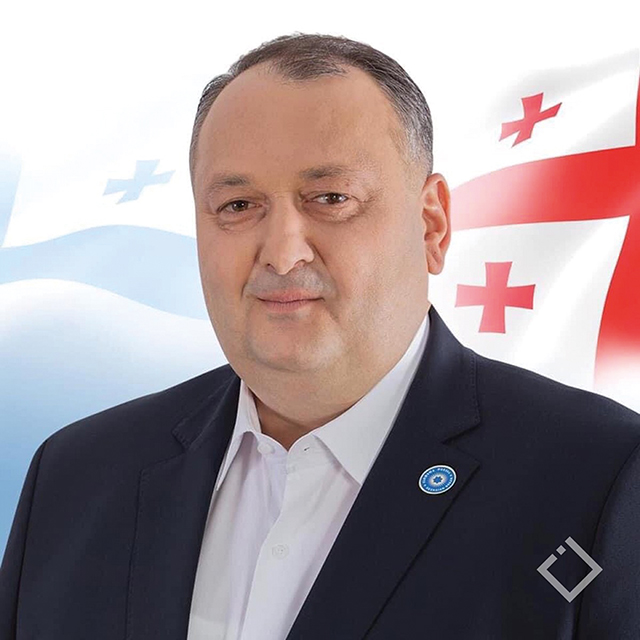
The local economy of Zugdidi municipality is mainly represented by agriculture, the processing industry, construction, tourism, services and trade. The most promising and developing directions are agricultural, tourism and processing. According to the data of the National Statistics Office of Georgia, at the beginning of 2018, the number of economic entities with active status in Zugdidi municipality was 2270.
Compared to 2014, the number of registered enterprises has increased. Large enterprises are seen mainly in agriculture and processing. There is a tendency for companies to grow at the expense of SMEs.
Industry-based industries are mainly represented by nut processing, building materials and timber processing, the food industry, and furniture manufacturing. The agro-climatic conditions of Zugdidi Municipality are conducive to the creation of multifaceted and highly profitable agricultural production, especially for the development of fields such as nut breeding and production, tea production, corn production, subtropical crops production (Citrus, bay leaf, feijoa, etc.), kiwi, cranberries, fruit trees, and one-year production of cereals and vegetables. The total volume of agricultural land is 35556 ha.
Zugdidi Municipality has the potential (climatic conditions, geographical location) to become a major destination for tourists, to play the role of a tourist hub, both during the mountain holiday season and at sea, and to generally combine the sea and the mountains through interesting tourist routes.
[Source: Wikipedia, APM Terminals, gov.ge]
By Katie Ruth Davies and Ana Dumbadze

